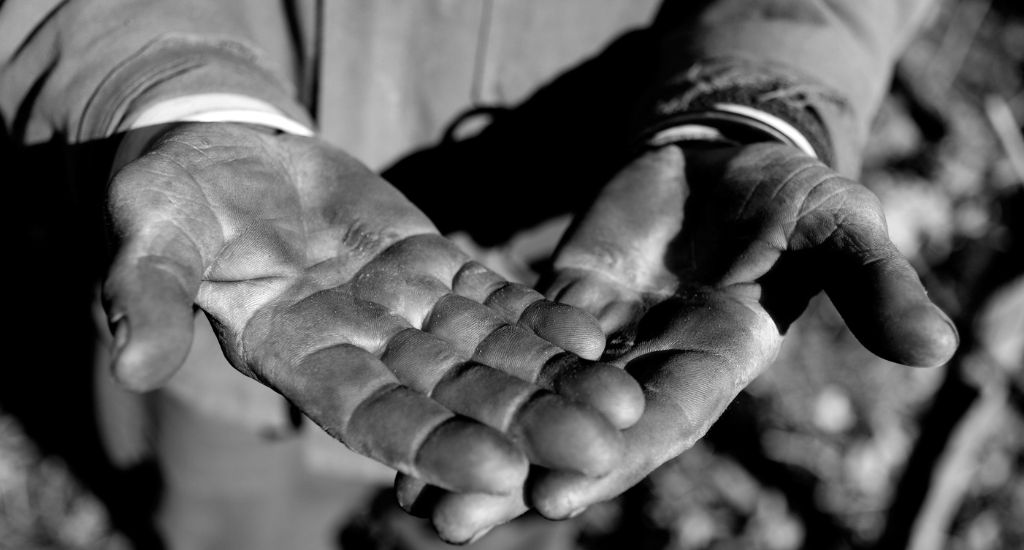The fields stretch to the horizon and stories are etched into the very soil in the heartland of Punjab, where a quiet revolution has been stirring. It’s a tale of people who once tasted the bitter sting of bondage to end up as bonded labourers and now dedicate their lives to setting others free.
Jagseer Singh, a Dalit from Dalel Singhwala village in Mansa district, was just 17 when he found himself shackled by his father’s debt of Rs 22,000. His dreams of a carefree youth or secure future with a good education were shattered when a landlord knocked on his door, decreeing that he must toil in the fields to repay the debt.
“I had returned home after writing my last school exam when the landlord came…,” recalled Jagseer Singh, who is now 46 years old. For an entire year, he laboured under the unrelenting sun, the weight of borrowed money bearing down on his young shoulders.
But this was only the beginning. Year after year, he was passed from one landlord to another, each exchange for money deepening the chasm of debt.

“The interest on the borrowed amount was only increasing while we were being sold and bought like cattle by the upper-caste landlords to recover their money,” Jagseer Singh recounted, his voice filled with the echoes of that dark past.
Off human bondage
It wasn’t until 2002 that Jagseer Singh and his family tasted freedom, rescued under the provisions of the Bonded Labour System (Abolition) Act of 1976. It happened thanks to the intervention of Volunteers for Social Justice (VSJ), an organisation working to end the scourge of slavery and caste discrimination in Punjab and neighbouring states since 1985.
Also Read: The voice of a labourer
Jagseer Singh, now standing on the precipice of a new life, felt a calling.
“If our lives could change for the better, why not help others trapped in debt bondage?” he wondered.

In 2004, he joined VSJ, guided by its founder Jai Singh who died of Covid-19 two years ago.
Jagseer Singh began the mission to rescue others like him, to offer a lifeline to those ensnared by the chains of debt.
Today, the majority of VSJ’s members are former bonded labourers, united in their cause to emancipate others. Their shared experience fuels their determination.
“The one who has suffered in bondage can understand the pain of others,” said Hardeep Dholpuria, who was rescued in 2017 from a brick kiln in Warsola village of Gurdaspur.
Dholpuria epitomises this spirit. Even as a youngster, he yearned to escape the relentless rhythm of brickmaking and to glimpse life beyond the kiln.
Also Read: Why migrant labourers keep flocking to Kashmir

“The owner wanted me to give up my studies and instead make bricks with my parents,” he recalled.
Following his liberation, Dholpuria joined VSJ and, over the years, became proficient in the laws relevant to their cause. He mastered the art of drafting police complaints to rescue those still trapped. His aspirations reach far; he dreams of studying law, a sentinel of human rights.
One for all, all for one
Ranjit Singh and his family shared a similar fate — a life caught in bondage at a brick kiln, just 20 km from their village, Shakri, in Tarn Taran district. They were not allowed to visit home even during the off-season.
The fear was so palpable that they dared not utter a word about their plight, even when the VSJ founder arrived with police officers to rescue them. This fear still exists among the workers, Ranjit Singh said. He remembers those tense moments vividly. The Bonded Labour System (Abolition) Act of 1976 has become their weapon to liberate those still held captive.
Also Read: With no scope for their craft, Wadhas become labourers

In Punjab’s fertile fields, where stories of struggle and hope are interwoven with the crops, these valiant people have embarked on a mission to right the wrongs of the past. In the shadow of towering debts, they kindle the flame of justice, one rescue at a time.
The lead image at the top shows the worn-out hands of a labourer. (Representational image. Source: Canva)
Sanskriti Talwar is an independent journalist who writes about gender, human rights and sustainability. She is Rural Media Fellow 2022 at Youth Hub, Village Square.








